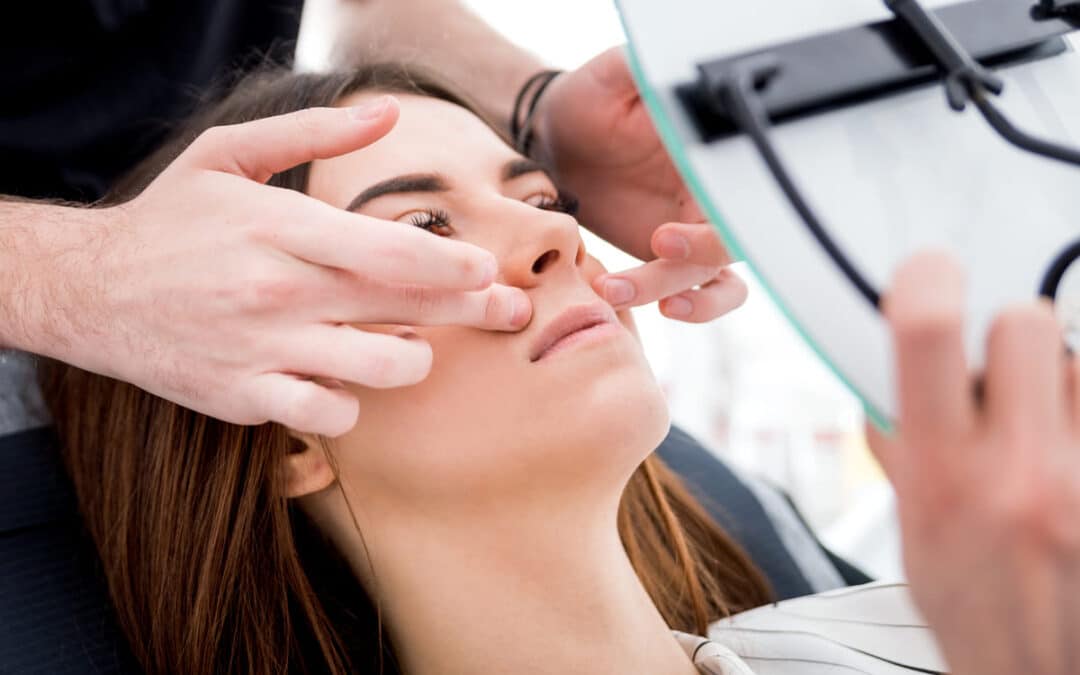Everyone has their unique beliefs about how they appear to other people. Our self-image reflects what we believe to be our intelligence, physical appearance, and personality traits. As most people know, how we see ourselves and how others see us are often vastly different.
Deciding to invest in plastic surgery is a highly personal decision that’s often driven by self-image. People hope it will help eliminate insecurities and expose their true, better selves—one that’s more confident inside and out.
But can cosmetic surgery truly lessen psychological issues or blocks associated with your appearance? The answer is more complicated than you might think, as plastic surgery can both:
- Boost confidence and improve self-image for people who are self-conscious about one or more physical characteristics.
- Result in body dysmorphia, where someone becomes overly critical of their appearance, leading to a negative body image.
The truth is cosmetic surgery and mental health are profoundly connected, and there are many things we tell our patients they should consider before choosing this often life-changing route.
The Psychological Complexity of Plastic Surgery
There’s been extensive research done on how plastic surgery affects people psychologically. While much of it concludes that cosmetic procedures improve a patient’s body image, experts disagree about their ultimate effect on self-esteem and state of mind. For instance, depression and anxiety are not uncommon complaints post-surgery.
Variables that come into play with plastic surgery success include:
- A general lack of understanding of mental health. Experts in the field have long struggled to define what it means to be “mentally healthy.” A person can appear remarkably stable yet still have one or more characteristics that negatively affect them, such as social phobias, anxiety, and body dysmorphia.
- Defining success. Some patients undergo plastic surgery and gain the self-confidence they hoped for. But what if they also end up experiencing negative emotions they didn’t have before the procedure?
- The surgery’s quality. Everyone’s seen examples of plastic surgery gone wrong. If a person is unhappy with the results of their procedure, it could significantly impact their self-esteem and happiness.
As to the relationship between attractiveness and happiness, our society tends to promote the idea that the prettier or more handsome someone is, the happier they are. And some research backs it up, primarily because people respond positively to those considered conventionally attractive. But most experts agree that being more attractive isn’t necessarily enough to boost mental health. That’s why it’s important to make the distinction between using plastic surgery to make someone attractive and making them feel more attractive.
Improving Your Self-Image With Cosmetic Surgery
Plastic surgery chosen for the right reasons can promote a strong and positive self-image. In fact, patients who have realistic expectations of the outcome are more often than not more self-confident, more productive in their work, and more comfortable in social situations.
Each patient’s circumstances are different, but understanding these basic psychological issues before opting for cosmetic surgery can help you decide if it’s the right choice for you.
Is It the Right Time?
Everyone experiences physical and mental stress in life. It’s vital to schedule your surgery at a point when you aren’t under exceptional levels of it. To decide if the time is right, your surgeon might ask questions about your current relationships and whether there any problems at work or home causing you undue stress.
The more emotionally healthy you are before surgery, the more likely you are to recover more quickly and be satisfied with the results.
Change is Difficult
Adjusting to a “new” you, particularly after a more extensive or dramatic procedure, can take considerable time. Until you’ve learned to accept the change in your appearance, your reflection could seem unfamiliar. That can be jarring, so you’ll need to give yourself the time and space to adapt.
Support is Essential
The more support the better, but just one supportive person can make a huge difference during your recovery, particularly while you wait for swelling and bruising to fade. Your support buddy will also be helpful when otherwise well-meaning people say things like, “You looked fine before” or “Why did you get plastic surgery?” As you recuperate and adjust, you’ll want to stay focused on why you decided cosmetic surgery was right for you.
Depression and Anxiety
While many people feel extremely happy and confident after plastic surgery, post-op depression and anxiety are common side effects of the procedure. Common feelings include regretting the decision, anxiety over what you’ll look like after the swelling goes down, and a heightened sensitivity to people’s comments. Your surgeon can help minimize the risk of this occurring by explaining what your recovery process entails and reminding you of your motivations for having the surgery performed.
If you suspect you’re experiencing an anxiety disorder or body dysmorphia, it can be extremely beneficial to talk to a mental health professional before undergoing plastic surgery. They can help you identify and manage these and other conditions and guide you in a healthier way of thinking and living.
How to Find the Best Plastic Surgeon
Plastic surgery changes your appearance, but it also changes how you see yourself. It’s essential for patients to understand that plastic surgery is not a cure for deep-seated emotional or psychological issues, so it shouldn’t be relied on to fix self-esteem problems.
Ultimately, the most successful cosmetic surgery procedures are the ones where patients have realistic expectations and find a qualified and experienced plastic surgeon. A good plastic surgeon will:
- Fulfill your wishes without compromising your health or future happiness.
- Put your well-being first.
- Evaluate your current psychological state to ensure your procedure is a rewarding success.
- Ensure you aren’t having surgery due to outside pressures.
At Napa Solano Plastic Surgery, we know that cosmetic surgery is a personal journey. Our surgeons consider their patients to be equal partners in the process and share their goal of feeling more comfortable and confident in their bodies. They also take the time to talk about options, benefits, and risks, so patients feel confident in their choice of procedure. We believe this approach ensures our patients achieve the best possible care, faster recovery, and desired outcome.
To learn more about the cosmetic surgery procedures offered at Napa Solano Plastic Surgery or to schedule a consultation with one of our experienced and skilled surgeons, get in touch with us today.





